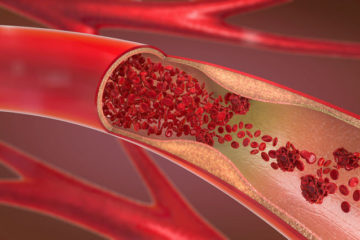It has been known for some time that stress weakens our immune system. It injures the bacterial colonies of our gut microbiome and that is a major way it affects our immune system. This makes us more susceptible to cardiovascular diseases like high blood pressure. It also causes inflammation which drives both cancer and mental illnesses including depression and anxiety. But this is not all that stress does – it also brings about physical changes in our brains which have far-reaching effects.
What is stress
Stress is the inability to control the forces that shape our lives. When under stress we struggle to control the flood of information coming at us. When things go wrong, it feels like our fault – perhaps we could have planned more and anticipated the issue. In the past, we might have blamed the weather or God as a farmer could, but now we don’t do that. This in itself causes more stress as we blame ourselves.
Stress actually changes the terrain in our brains. This article looks at what those changes are, what the effects of these changes are to our behaviour or mood and what we can do about it.
Multitasking and stress
Multitasking is said to make you “stupider than being stoned”. Apparently incoming email interrupting your work affect IQ more than marijuana. You can read more about this <here>. The idea that women’s brains are wired to multi-task and men’s brains to compartmentalise is completely untrue. I have found the most productive workdays being when I turn off all notifications on my desktop and put the phone in another room.
The adult ADHD link
Some experts believe that a diagnosis of ADHD in adult women is simply a case of overwhelm. It appears to be more a case of stress changing the brains of women. Underperformance has been medicalised. Modern life is pushing women over the edge and drug companies are tapping into this neurosis.

Stress changes our brains in the Pre-frontal cortex
The pre-frontal cortex of our brains lies just behind the forehead and eyes. Here is the key to human intelligence. It is what distinguishes us from animals, making us who we are.
The pre-frontal cortex regulates blood pressure, heart rate and glucose levels. It also governs executive functions – how we think, reason, and learn, plan, concentrate, remember, judge and control ourselves.
When a human feels pressed for time, rushed or overwhelmed, the pre-frontal cortex shrinks.
It also controls the amygdala.
Brain changes in the amygdala
The amygdala is the seat of negative emotions: fear, aggression, anxiety. It is controlled by the pre-frontal cortex which keeps it ‘civilised’ or controlled.
When stressed, the amygdala “lights up.” Then we yell at people and lose control. As stress shrivels the pre-frontal cortex, the neurons in the amygdala actually grow – and so does anxiety, fear and negative emotions.
How modern life affects the brain
When the stresses of modern life become more constant, the pre-frontal cortex begins to shut down. Scans show that the more stress, the smaller the volume of grey matter in this brain region. This impairs our ability to keep our cool, to think clearly, reason, plan well, organise, make decisions, remember, and calm down in volatile situations. It’s not that we are lacking in skills, but rather than we are overwhelmed with things to do.
Further, this impacts our sleep, predisposes us to risky behaviour and affects attention span.
It is patently obvious that stress changes our brains.
Who is most affected by stress?
Stress ages people., especially women. In a study of 13000 genes in 4 brain regions, 667 express differently in men and women and 98% of these lead to more rapid ageing in women than in men.

Stress affects people more when they are in low socio-economic brackets, have low self-esteem, tough childhoods, little physical activity and few friends.
A person’s perception of stress is more important to their health that what the actual events are. What we THINK about ourselves and our lives is our reality.
People who have lived through several stressful experiences have 20% smaller brains in the 4 areas which affect good decisions, paying attention, mood and emotion control, and control of impulses and appetites.
Stopping stress from changing our brains
When stress stops, the effects disappear. Young people can recover within three weeks. Middle-aged people recover slower – and sometimes only partially or not at all.
Walking five out of seven days a week for an hour a day actually makes the hippocampus larger, improving mental flexibility.

One important thing we can do to reduce stress is to get “in the flow” with something we like doing. This is a state where one becomes absorbed in the task at hand, losing themselves and feeling most at peace. It requires undivided attention and uninterrupted time. Fewer women are spending time in this thoughtful creative space – one’s own timeless room. And at what cost? There is guilt being in the flow – because you abandon all responsibilities for the time being.



0 Comments